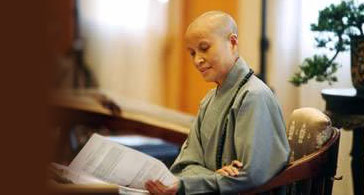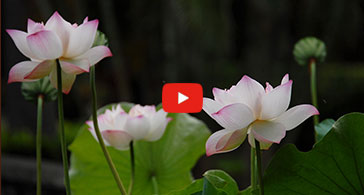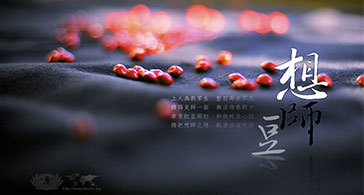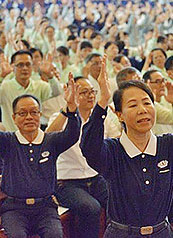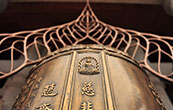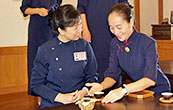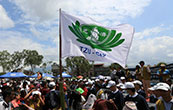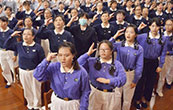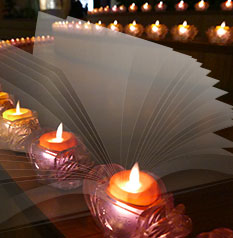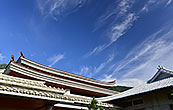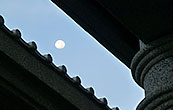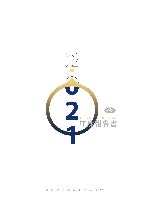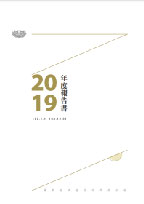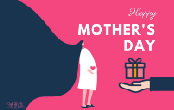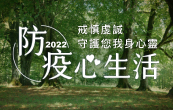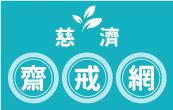慈濟宗門的人文精神與思想略說(上)
2007-05-06 | 何日生
The Spirit and Philosophy of Tzu Chi Movement
從證嚴上人之思想對當今世界的啟示談起
The Concise for Dharma Master Cheng Yen’s
Philosophy and Her Inspiration
to the Modern World
發表于:日本京都庭野和平獎研討會
Kyoto, Japan Niwano Peace Foundation
前言
2006年12月,慈濟基金創辦人證嚴上人,在花蓮靜思堂面對將近千位慈濟志業體的同仁及幹部,於精進二日共修活動結業典禮中,以一個半小的時間開示「慈濟宗門、靜思法脈」的意涵與其因緣。
In December 2006, Dharma Master Cheng Yen, founder of the Buddhist Tzu Chi
Foundation, delivered a speech to more than 800 of her employees at a spiritual
training course. In the speech, she explained the origin and meaning of the Tzu Chi movement and its core philosophy.
「我們的宗旨就是走入人群,去知苦、惜福、造福,這就是靜思法脈,慈濟宗門…….。作為佛陀的弟子,要能體會佛陀在人間出生、在人間覺悟、傳法於人間,就是要開啟能夠在人間運用、度化世人的人間佛法。既知世間沒有『永住』的事物,也了解人生無常之理,知苦就要堪忍,修得忍而無忍的功夫,輕安灑脫,即能脫離『三苦』(備註)。」(衲履足跡,2006)
Involvement in the secular world and trying to reform it has been our main
purpose. Through our missions, we become aware of the illness and pain of
others, value the blessings we enjoy in our own lives and bring happiness to others. This is the core philosophy of Tzu Chi. As disciples of the Buddha, we have to understand the reason why he appeared in the human world – to awaken the human race and spread his teachings among people. The ultimate aim of the Buddha was to cultivate practices and principles that can be used in the human world and awaken human beings.
We already know that nothing exists forever in the human world and that uncertainty
is the only certain principle of life on earth. If we can understand suffering and learn to tolerate it, then we can truly achieve peace of mind and shun the three afflictions.
這一段開示在所有聽者心中彷彿是一道清澈明亮的聲響,這不是意味著佛教多了一個宗門,而是諭示著人類一股新的精神文明將逐漸在世界各地拓展開來。
This teaching by Dharma Master Cheng Yen was like a clap of thunder that struck everyone’s heart and awoke everyone’s spirit. It did not signify simply a new school within Buddhism but a new movement within human civilization that may gradually spread to the whole world.
這新文明為何?和漢傳佛教有何異同?對於當今紛擾之世界,「慈濟宗門,靜思法脈」,能提出何種思想、見解及行動,協助當今社會建構一個新思維和新人文?
What will this new movement mean? What are the differences between traditional Chinese Buddhism and the philosophy of Tzu Chi? In the chaos of the modern world,
what can the philosophy and practices of Tzu Chi contribute? How can they
influence and reform the human condition?
從生死之迷惑契入長情大愛
From the riddle of death, become aware of the meaning of Great Love
1961 年,是二次大戰結束後的十五年,在台中豐原的一位年輕女子,在父親過世之後驀然驚覺生命的無常,她開始更嚴肅地思索著生命的真實意義及最終的境地。那位年輕純真的女子就是今日慈濟基金會的創辦人——證嚴上人。那一年,她深切省思,為什麼人會往生?為什麼我們必須走這一遭?
In 1961, 15 years after the end of the Second World War, a young woman living. In Taichung, central Taiwan suffered the death of her father and experienced the inevitable uncertainty of human life. She began to seek the meaning of life and strove to reach the final peace of the human spirit. This young woman later became the founder of the Tzu Chi Foundation, Dharma Master Cheng Yen. That year, at the moment of her father’s death, she deeply reflected on the question of why people have to die and why are we here in the human world?
記得當年禪宗五祖弘忍大師告訴弟子「世人生死事大」,要大家作一偈,以示是否開悟。結果出現一位才剛到禪院,每日劈材淘米的弟子慧能,作出了「菩提本無樹,明鏡亦非台,本來無一物,何處惹塵埃」的偈語,令眾人大驚,弘忍大師只好故作無事狀,用鞋將廊壁上的偈子擦掉並說:「還是未見悟。」然後趁三更半夜將衣缽傳給已經頓悟的慧能大師(禪宗六祖),並要他連夜逃跑,因而開啟了中國禪宗的宗派以及其後一千多年的興盛。
If we look back a thousand years, we find that the fifth Master of Zen, Hung Zeon, told his disciples that the meaning of life and death was the ultimate question for every mind. He told all of his disciples to write a statement to show that they had been awakened. Unexpectedly, a young disciple who
had just come to the monastery and spent his days chopping wood and washing rice wrote a statement which said that a Bodhi tree is not a tree, a mirror is not a mirror and that the origin of everything is emptiness and cannot
be polluted by dust. This statement shocked many disciples of Hung Zeon,
so he withdrew the statement and told the audience that it did not signify the final enlightenment. He did not want to be associated with the young disciple and went to the kitchen at midnight, gave the young man his monk’ is alms bowl and told him run away. This young man, Hwua Neon, eventually started a new school of Chinese Buddhism which was called Zen and flourished for more than 1,000 years.
然而偉大的精神領導者,竟皆是從「生死」提問開始,總是不被周圍的人理解及接受,他們都經歷過孤寂的心靈歷程,而這歷程適足以培養其偉大的人格及超越時代的高遠思想。
Was it a coincidence that these great spiritual leaders began their journey with questions about life and death? Their families and friends did not understand them, so they endured solitude and a spiritual journey, which became the source of their greatness, in character and wisdom, lasting for generations.
慧能從「世人生死事大」之大哉問,提出「本來無一物」之覺醒,歷經逃亡的命運十多年,最後才在中國南方安頓下來,然後傳頌心法。觀照證嚴上人也一樣以生死之大事契入生命的無常,將不捨世間離苦的心轉為大愛之情。如他所說:「我也知道親情猶如一場舞台劇,依業緣而聚。未來,我的人生要把愛放到哪裏?是要愛自己呢?還是愛我的家庭?或是愛我所偏愛的人?用心思考,這些都還不夠寬廣。同樣的一分愛。雖然當時環境不允許,但是我追求佛法的意志非常堅定」(衲履足跡 2000)
Through a fundamental questioning of life and death, Dharma Master Hwua Neon realised the origin of emptiness. He endured the experience of running away, eventually settled down and begin to deliver the teaching of Zen. Dharma Master Cheng Yen had a similar experience, in seeking the ultimate truth about life and death. Through this search, she came to understand the uncertainty of life and how to transform this enlightenment into selfless great love for all people.
對世間無常、究竟空、畢竟空的情感及思惟,轉化為對眾生之長情大愛,堅定了證嚴上人對佛法的追尋。
The awareness of the uncertainty of live and the intrinsic emptiness have significant impact of her affection and belief. She decided to devote her love to all needed people and that she call it awakening love and pure affection. Aftermath, she was persistently seeking the Buddha like spirit.
思惟證嚴上人早年的際遇和對於生命本質的體會與慧能大師強調「本來無一物」之空性,證嚴上人從「無常契入空性」,從「空性契入妙有」,以《無量義經》的入世之法門,開闢慈濟宗門,確立靜思法脈,闡揚人間大愛,這與慧能大師對「本無一物」、「從無所本,立一切法」之空性闡揚互相觀照,又是不同時空各有其濟世度人之法。
If we think of the experience of Master Cheng Yen in her early life and her consciousness of the meaning of life, we find that the great Zen Master Hwua Zeon emphasised the essential emptiness of existence. Master Cheng Yen accepted this concept and evolved it into the belief that we can do many things. She applied the teachings of the ‘Innumerable Scriptures’ in the secular world, established the school of Tzu Chi and the philosophy of Still Thoughts, advocating the ideal of Great Love.
真空亦是妙有,無常中正可以表現人性中無不歇止的覺有情。上人早年對生死之思索,成了他教導眾生一個非常重要的課題。透過一切法門,讓眾生了解世間的一切,終究無從把握、終究過往煙雲,只有大愛和慧命長存不朽。慈濟四大志業:慈善、醫療、教育及人文,都是為了認識一個永恆的生命之存在;體悟諸法究竟空、畢竟空,但又妙有真實之境界。
True emptiness is equivalent to indescribable creation. Through our awareness of the uncertainty of life, we will be able to show the constant awakening of human nature. Dharma Master Cheng Yen’s thinking and suffering on the issue of life and death during her early years became an important lesson for her to teach all people. She aims to make everyone understand that all forms of life will not survive forever. Everything we humans will do will disappear like a puff of smoke. Only selfless love and enlightenment are immortal. The True emptiness is equivalent to indescribable creation. Through the uncertainty of live awareness, we will be able to reveal the constant awakening of human nature. The thinking and suffering on the issue of live and death in the early age of Dharma Master Cheng-Yen became an important lesson for her to teach all people. Master aims to make all people to understand that all existence will not sustain eternally. Everything is just course of action, and only selfless love and awakening wisdom may be immortal.
The four missions of the Tzu Chi Foundation – charity, medicine, education and humanity – aim to help us understand the existence of eternal life. Realising that all creation will finally become emptiness, we must also understand that the complete emptiness and ultimate nothingness mean abundant and immeasurable states of creation. The scriptures of Divine Immeasurable Meanings say that we must ‘maintain the state of mind which is extreme calm and purity, a selfless will, concentrate on our mission and sustain this for ever.’ This scripture inspired Master Cheng Yen and gave her enormous courage. Use this pure mind and spread it to all people and we will acquire the ultimate wisdom to enrich all human beings. This is the path which Buddhists and Tzu Chi volunteers have to follow.
這種體悟並不是教導弟子去漠視人間、冷淡對待人生的苦。上人積極地要慈濟人搶救生命,不論是地震、風災、水災或戰禍,慈濟人以無畏施的心情,在搶救生命中,看見生命的無常,終至體會「萬般帶不去,只有業隨身」的道理;並發願追求一個更為根本和清淨的心靈歸宿。不捨眾生,在搶救眾生之際,能復為說法,使人人最終都成為能樂於幫助人的菩薩。
This enlightenment will not make us ignore the matters of the world or stay away from the afflictions of people. Rather, we actively preserve and cherish human lives, during catastrophes like earthquakes, typhoons, floods and wars. The volunteers of Tzu Chi feel no fear in going to rescue and support people who are suffering. By supporting others, we come to realize that human life will not last for ever and only Karma is eternal. We devote ourselves to cultivating a pure mind and teaching people to attain happiness, through becoming a Bodhisattva by helping others.
戰火下醞釀之思惟
An ideology born from a time of agitation
證嚴上人生長在一個戰亂的後期,他年輕的時候一樣躲過空襲,他看到有一個人為了躲砲彈,跑進防空洞裡,手裡還拿著一把菜刀,應該是煮飯來不及放下菜刀就跑出來,而且另一隻手臂鮮血直流,原來他只顧著躲砲彈,竟不自覺的讓菜刀把自己手臂砍傷。證嚴上人幼年時小小的心靈看到生命的脆弱及人性互相殘殺的傷痕,不禁自問:為何生命必須殺害生命?為何人與人必須互相壓迫對抗?沒有人可以正確估計這一段台灣戰亂的歷史對於證嚴上人的意義有多深刻,但是一個和平互愛的社會,應該是他早年的歲月中就已經深切渴忘的。我們必須感恩那一段戰爭歲月並不算長,證嚴上人也不需一直躲戰火,這使他的生命能在一個更穩定的環境中,自由開闊地發展其人格及思想。
Dharma Master Cheng Yen was born when the war at the time was nearing its end. As a child, she also ran to bomb shelters during air raids, and even saw a man cut himself unwittingly with the butcher knife still in his hand as he ran for the bomb shelter in utter fear, all of which left an indelible impression on her young mind of how fragile life is, and the unspeakable cruelty of humans against one another. It compelled her to question the logic of such cruelty, and why must humans oppress and conflict with one another. We do not fully know how this chaotic period in Taiwan’s history had influenced Master Cheng Yen. But we can be certain that a peaceful and mutually loving society and world is something she had longed for profoundly since her early childhood. We are deeply grateful that the war was not longer or worse, and that Master Cheng Yen did not have to spend any more of her time in this world in chaos, but could spend it in a more peaceful environment, cultivating her great character and philosophy.
1960年代的台灣經濟開始逐漸富裕,證嚴上人的俗家父親生意做得不能不說是很好。將近十家戲院同時經營,證嚴上人小小年紀已經學會事業管理及待人之道。他對俗世世界的了解是在那時候奠定的;對於俗事世界充分了解,使他能夠在入世志業中不致過度理想化。而上人離開家庭證應了他對俗世的超越,一如佛陀生長在皇宮,使他歷經人間繁華,但這一切都在更遠大的真理追求中顯得微不足道。
Taiwan’s economy began to prosper during the 1960’s, and so did the business of Master Cheng Yen’s father, who owned ten or so movie theaters. Working at her father’s theaters taught Master Chen Yen skills in managing a business and dealing with people, as well as an understanding of the ways of the mundane world. It also helped her to keep from being unrealistically ideological in her spiritual pursuit. However, her resolve to leave her comfortable secular life for the monistic life showed her conviction for seeking more than a mundane existence. Much like the Buddha who was born into a princely existence that showed him the nature of the mundane world, yet all of which seemed trivial relative to the greater pursuit in life.
老子曾說:「生而不有,為而不恃,功成而弗居。」這話的正確意義應是說有了功不居功,生成又能不佔有,有了作為才說不憑恃,若無功的人說他不居功,這是不切實際的。能從有而入無,才是真正覺悟的無。
Lao-tzu once said: “To have without possessing; to do without controlling; to succeed without being praised. As that is his mysterious power, he is eternal to the world.” The proper interpretation is that one must be in possession in order to lay down possession, and must be doing to be without controlling, and success before not being praised. It would be illusory for one to lay claim to these merits without possession, doing or success. Only those who have been and have let go are truly aware of the intrinsic emptiness of being.
證嚴上人的成長背景與佛陀的人生際遇是有相類似的。我們並不是說一切孕育偉大的土壤都似乎早已預備,但是偉大之所以成其偉大,除了天生內在之力,也自有其造就它、成就它的特殊際遇。
We’re not saying that the occurrence of such extraordinary greatness human in history are all a matter of predestination, but there’s a significant affinity between the circumstance that Master Cheng Yen had grew up in, and that of the Buddha’s living experience. However, more than the potentials that one was born with, it takes a great initiative on one’s own to develop and cultivate such extraordinary gift in order to realize this potential for uncommon greatness.
佛陀來人間是一大事因緣——開示眾生悟入佛之知見。為何是一大事因緣?因為這因緣必須匯聚各種條件,這些條件是那麼的不可思議,那麼恰如其份地組合在一起,才造就佛陀來一趟人間。對於一個身為證嚴上人的弟子來說,要分析追溯上人到人間的因緣,不是一件容易的事,但分析是何種人間引導一位偉人開創出人世間的新文明,卻是我們必須思惟的事。
The birth of the Buddha was such a historic occurrence, because for such an extraordinary event to be realized, it requires a great combination of circumstances, which are undeniably inconceivable and coincidental, and only then does such a rare, historic moment take place. As insurmountable as it is to decipher the affinity that ushered the birth of Dharma Master Cheng Yen to our world, we must however seek to understand the precondition that necessitated such an historic event.
慈濟發軔於台灣的歷史因緣
The origin of Tzu Chi Foundation in Taiwan
證嚴上人出生在東方世界的一隅——台灣,這個小島,歷經西方殖民統治將近四百年之後,對於西方的資本主義以及科學主義有相當程度的熟悉和不排拒。而中國之儒家思惟在海洋及政治雙重隔絕的歷史因素下,使得台灣有儒家之傳統,但一直未讓儒家處於文化的支配性地位。漢傳佛教在中國這一片古老大地經過將近一千七百年的發展,也對台灣文化及人民之生命觀有相當深遠之影響。
Dharma Master Cheng Yen was born in an oriental small island, Taiwan. The island was colonized for 400 years by the western countries, as a result, it was not only familiar with but also didn’t reject to the western capitalism and scientism. Due to the geographic and political separation, the Chinese Confucian tradition exists in Taiwan but never plays the dominant role in culture. Buddhism form the Chinese Han Dynasty had developed in ancient China for nearly 1700 years and it also had great influences on Taiwan culture and the philosophy of life of Taiwanese.
這三股文明匯流在中國邊陲的台灣,在世世代代的子民為生存奮鬥的過程中逐漸融合演進著;這些文明的土壤正是孕育慈濟在台灣生長茁壯的結構性力量。而證嚴上人以幾乎是天生具有的大智慧及無比的人格特質,不自覺的、創造性的,將這股薈萃的人文運用融合,並且發揚光大。
After these three kinds of civilization converged on Taiwan, they integrated and proceeded generation by generation. These civilizations are absolutely the structural power that gestated the Tzu Chi World. Dharma Master Cheng Yen combined these cultures with innate wisdom and incomparable personality to enhance and glorify them.
正如文藝復興發軔在義大利的小城邦佛羅倫斯,台灣作為中國古老帝國的延伸,有它自己獨特的歷史命運;這命運使它更早經歷資本主義及科學主義的洗禮。它沒有中國大陸抗拒西方的激烈過程,也沒有發生五四運動中以「中學為體、西學為用」或全盤西化之間的掙扎矛盾,及其所引起的中國社會巨大撕裂及戰爭。
Just as the Renaissance oriented from the small town, Florence in Italy, Taiwan , being
as an extension of the ancient Chinese Empire, also has its particular history and fate. This kind of fate makes it to experience capitalism and scientism early. There were no acute processes of confronting the western colonization, which happened in China, nor contradictory of “Chinese culture as the ontology, western culture as practice” in Chinese culture revolution in 1919 or total westernization. However, these conflictions had solicited turbulence and war in Chinese society.
台灣受到儒家思想的影響,但是不同於儒家在中國大陸是基於支配性的思想地位,台灣比較沒有儒家在封建社會中,那種以「家天下」的深沉文化結構,因為它多半時間是被西方列國統治。它也沒有直接擁抱西方之社會文明,而是以日本作為橋梁,接受歷經「明治維新」修正的西方社會體制。佛教信仰在這裡逐漸被民間信仰及道教所融合,逐漸失去其獨特性及深厚的思想基礎。
Unlike being the dominant culture in Mainland China, the Chinese Confucian tradition in Taiwan doesn’t emphasizes the imperialism in the feudal society. This is because Taiwan was colonized by the western countries most of the time in its history. In addition, Taiwan doesn’t accept the western civilization directly, but embraces the revised western social system after the Meiji restoration through Japan. From now on, Buddhism is merged by folk belief and Taoism and lost its uniqueness and profound thoughts.
佛教在台灣有被消融式微之慮。然而這樣的社會文化氛圍,卻為一個全然的文明思惟之生長,提供豐富且相對自由寬廣的空間。慈濟在台灣的誕生、發展,無疑是歷史的偶然,也是歷史的必然。
Buddhism seems to be withered gradually in Taiwan. However, this kind of social and cultural atmosphere provides a relatively profound, broad, and free space for the growing of a brand new culture. Indubitably, the orientation and development of Tzu Chi in Taiwan are not only accidental but consequential in history.
慈濟與儒家之淵源
Tzu Chi Merit Society has its roots from Confucianism
1966年證嚴上人創立慈濟功德會,以「利他、度己」的理念,強調世人應「無所求的付出」。這和資本主義「先利己、再利他」的觀點是完全不同的。無所求的付出活化了佛教三輪體空的意義,讓佛教走進現代化,並賦予深刻被理解性及實踐力。
Dharma Master Cheng Yen founded Tzu Chi Merit Society in 1966, with the philosophy of “helping others, helping yourself”, and emphasizing altruism. Being altruistic enlivens the Buddhist concept of “Emptiness of the three entities – donors, recipients and alms”, modernizes Buddhism, and makes the concept understandable and executable.
證嚴上人帶領會眾走入人群,這和傳統的佛教強調往生西方世界,強調內證自明之直觀宗教有明顯的不同。證嚴上人認為淨土在人間,淨土在當下之一念心。他不只要慈濟人走入人群,更要志工把家庭顧好才能做慈濟,有別於傳統佛教最高修行境界強調之「捨親割愛」。家,是證嚴上人強調之社會重要的核心價值,這是受儒家思想的影響所致。上人早年勤讀《法華經》及《無量義經》之同時,也熟讀《四書》,這對他的思想有深遠之作用。
Dharma Master Cheng Yen brings Tzu Chi members into the multitudes, which differs significantly from the traditional Buddhist emphasis of self-reflection and self-purification leading to the Pure Land. Dharma Master Cheng Yen believes that the Pure Land is here with us on earth presently, as long as we have the right thought. She does not only want Tzu Chi members to walk into the multitudes, but also wants the volunteers to take care of their families before doing Tzu Chi – which is noticeably different from the traditional Buddhist concept of leaving the family behind. Under the influence of Confucianism, Dharma master Cheng Yen emphasizes Family as the core value of the society. Early in the master’s life, she read the “Four Books of Chinese Classics” in addition to the Buddhist readings “The Lotus Sutra” and “The Immeasurable Sutra”, which had a considerable influence on her thoughts.
慈濟世界雖重視家庭,證嚴上人總是要志工們先把家照顧好才能做慈濟;而不同於中國封建社會「家天下」常隨著裙帶關係的觀念,只要有人得升進士,就能庇蔭家族,因此中國傳統儒者政治有所謂「一人得道,雞犬升天」之譏。然而,一人體悟得道,庇蔭社會得大愛,則是證嚴上人所強調。
Even though Tzu Chi values Family tremendously, and that the master always wants the volunteer to take care of their families before volunteering, there is also considerable difference from the Confucianism concept of family. In traditional Chinese society, once a person gains wealth and power, the whole family leeches off it. In Tzu Chi’s world, once a person is enlightened, he/she spreads the knowledge and love.
上人教導弟子以愛家人之心愛天下人,「拉長情、擴大愛」,這將儒家在歷史上被扭曲的負面發展提供了修正,也將中國傳統社會之裙帶主義做了智慧的提昇。在慈濟世界裡,我們都是一家人,但這個家,不是營一己之私的家,而是擴大愛心,去愛更多人、一起去無私奉獻的「大家庭」。
Dharma Master Cheng Yen teaches her disciples to love everyone in the world as their family. This enlarges the family love, and rectifies the selfishness of the Confucian concept of family. In the Tzu Chi world, we are all family. This family is not a selfish one, but one that loves everyone, and one that is altruistic.
儒家的另一個思惟,是要知識份子或士大夫在一生中達成「三不朽」,即「立功、立德、立言」。然而儒家又是不強調輪迴及來生的觀念,孔子總說「未知生,焉知死。」似乎對於儒者而言,人就只有這一輩子;這一輩子總是要做到「三不朽」的任何一項,人生才沒有空過,生命才算有交代。對於現世的關懷及投入,成了儒者最重要的精神依歸。但是如果一個知識份子在僅有的一生最終未能立功、立德、或立言,那他的良心及價值體系勢必產生巨大的傷痛。
Another core Confucian value is having the well-educated achieve three immortalities - render meritorious service, live and demonstrate morality, and expound one's ideas in writing. However, Confucianism does not believe in reincarnation. Confucius says, “Without understanding the origins of life, how would we know about life after death,” as if the present life is all there is. The meaning of life becomes to achieve the three immortalities aforementioned, and that achievement in the present life is the most important spiritual need. However if a well-educated person did not achieve the three immortalities, then his conscience and value system would be scarred heavily.
在古代王朝中,士大夫之抱負、見解及貢獻的欲求,經常轉化為黨爭、政爭,此等因積極入世的趨力所產生人與人激烈爭執的人性劇碼,在歷代王朝中層出不窮。然而這樣的心理壓力,讓儒者充滿了胸懷治國平天下的道德勇氣,一方面也給予自己巨大的成就動機之壓力。以致知識份子擠在朝廷裡,一生為君王、為國家奔忙,或挫折、或哀傷、或失勢、或優裕,沈沈浮浮的宦海生涯,折磨著每一個士大夫,這多半和淑世的強烈企圖心有關。
In the past Chinese dynasties, the well-educated politicians’ desire for achieving the three immortalities often transforms into political struggles. The belief in only the present life and the need of achievement causes intense conflicts among people, and has repeated over and over in history. This kind of pressure fills Confucian politicians with moral courage to perform a great job of ruling the country, but on the flip side also puts too much pressure on their own shoulders. The well-educated then spends their entire life labouring for the emperor, and experiences an emotional roller coaster during their political career, which is mostly caused by a strong motivation to achieve something important, something great, before one gets old. This serious life attitude put Confucians through a life of misery. At the end, the Confucians would give up and begin writing poems and drink alcohol for the rest of their lives.
慈濟對傳統儒家之省思
Tzu Chi’s Position towards Traditional Confucianism
與儒家「三不朽」之嚴肅使命相比,佛教有一個觀點說「菩薩遊戲人間」,藉種種身形教化有情眾生,其實,人一生所經歷的一切功名成就,都是假相,都是短暫的,一切只為歷練一個更永恆的生命智慧。一個人不可以不擇手段的立功、立德、或立言,因為今生造業,來生還要再報。佛教思想給予個人更高遠、更嚴謹的思惟,也是更為徹底的道德境界。
Compared with Confucianism’s serious quest for the Three Immortalities, Buddhism has a belief that “bodhisattva views life as a game”, meaning that whatever one accomplished in his/her life time is just transient, and is all just training for a everlasting life intelligence. Once cannot have the attitude of going to any lengths to achieve the Three Immortalities, since once one has created negative karma, one has to pay for it in the next lifetime. Buddhist thoughts give people a farsighted, structured philosophy, and are a more complete morality.
善與惡,作為與不作為,都會在宇宙因果定律中兌現,都會在心念意識中永駐常存。不管世俗世界對你的作為知不知曉或如何評價,惡業或善業一切都有其因緣果報。我們的心念,生生世世回繞在永恆的意識及慧命中不斷鍛鍊。
Good and Evil, Do or Not Do, will all be governed by the law of cause and effect, and be present in our consciousness forever. Regardless of whether if the society knows your actions or how to appraise your actions, positive karma or negative karma always have their effects. Our consciousness will be trained in its wisdom and knowledge in all reincarnated lives.
體悟這一點,一個人自然能夠更超越、更自在,或者更悠久的方式為生命努力。並非求功名、求文采、求美名才是不朽;不朽來自內在自性的清淨無染,永恆的追尋和奮鬥,是不離內在自性。不管身處貧窮或富貴,仕途得志或不得志,都只是為歷練心無所執的過程。
After understanding this, one can naturally be use a more advanced, more liberated, or more farseeing way to live one’s life. The Three Immortalities is not everlasting; eternality comes from the pureness of one’s Buddha nature, and that one’s soul searching and effort comes from the Buddha nature. No matter if one’s rich or poor, or whether if one’s achieved one’s goal or not, it’s all a process for eliminating one’s cravings.
「應無所住而生其心」,自性原本就圓滿自足,何須外求。這種思惟及境界,讓人們從世俗世界的捆綁中釋放開來,不致被世俗環境無止盡的牽扯,載沉或載浮。這種思惟,為人們指出一條更加寬廣,更加超越的自省之法和究竟覺悟之道。原始佛教大乘之法,並沒有要我們脫離世俗世界,而是證嚴上人所說「用出世的態度,做入世的事情。」這是不執有、不執空,既淑世又超凡的生命境界。
Because “應無所住而生其心“, one’s own Buddha nature is sufficient for happiness; why should one search in the external world? This kind of thought would release people from the worldly affairs, and not be chained by the never-ending worldly afflictions. This kind of thought points out a broader, and a more advanced self-reflection and enlightenment path. The original Mahayana Buddhism did not want us to leave the worldly affairs behind, which matches with Dharma Master Cheng Yen’s belief of “using the Buddha’s attitude to face worldly affairs”. This is an attitude in which one is not attached to what we have or don’t have, and is both worldly and enlightened.
慈濟對末法時期迷信之修正:從出世到入世
The impact of Tzu-Chi on the modification of superstition on the decay era of Buddhism
佛陀在《無量義經》所言:「甚深無上大乘微妙之義,當知汝能多所利益眾生,安樂人天,拔苦眾生。真大慈悲信實不虛,以是因緣,必能疾成無上菩提。」無上菩提智慧之道是以利益眾生為要。
As Buddha said in the Immeasurable Meaning Scripture that the divine meaning and wisdoms of the Great Vehicle of Buddhism expect us to support all mortal beings. Providing happiness to them and remove heir affliction. These true compassion and mercy convince people and bring them hope of bliss. By employing these opportunities and occasions you may reach the state of ultimate awakening and spiritual wisdoms.” This statement shows the ultimate wisdom is accomplished by devoting love to all mortal beings.
證嚴上人早年身處的世界,佛教逐漸被道教及民間信仰混淆,甚至淪為往生者的一套空虛的超度儀式。人往生了就找法師來唸個經,一般人竟以為佛教是死後的超生儀式,而非生命的依歸。文人於仕途也深信,進於儒,退於道,止於佛,佛教是一切繁華落進之後最後的慰藉,是一切生命的熱情消融殆盡之後,僅存的餘溫……。
In the environment where Dharma Master Cheng Yen lives her early life, the Buddhism teachings was intermixed with Taoism and Taiwanese traditional beliefs, even becoming simply a ritual for the dead. When one is about to pass away, one would find a monk to read some Buddhist sutra; Buddhism becomes a ritual for the dead instead of a way of life for the living. The well educated structures their career with the belief that Confucianism helps the career, Taoism declines their career, and Buddhism stops their career. Buddhism is a philosophy one would assume only after one has lost all the motivation towards life.
證嚴上人從自行剃度以來,從不趕經懺,他不願意佛教經典淪為腳尾經(人往生了,法師在腳邊誦經之意)。佛教必須更積極入世利益眾生,成了上人重要之生命目標及理念。佛教徒的一生追尋,也不是要往生西方極樂世界,上人說極樂世界在當下,涅盤寂靜不一定在死後,當下一念不生、一念不起,就是涅盤寂靜。
Ever since Dharma Master Cheng Yen has tonsured herself, she does not approve of Buddhism being a ritual for the dead. Buddhism needs to be more engaged in the worldly affairs to benefit people, and this has become the master’s life goal. A Buddhist’s life pursuit should not be to get to the Pure Land, but the master believes the Pure Land is right here with us on earth. 涅盤寂靜不一定在死後,當下一念不
生,一念不起,就是涅盤寂靜。
上人將佛教帶回原始精神之入世情懷。只有透過利益眾生,才能證得無上菩提。從另一個方向思考,慈濟人文是復古佛在世時的教義與精神,四大志業更是以創立適應現代社會生活背景的方式來教化大眾。
She brings Buddhism backs to its original form where there is concerns to help in the worldly affairs. Only through working to benefit the people, can one achieve enlightenment. Seeing it from another perspective, Tzu Chi’s culture is a renaissance of the Buddha’s original teaching and spirit., and the Four Main Missions are creating a way of living the Buddha’s teaching in the modern society.
漢傳佛教是否正經歷文藝復興
Whether Chinese Buddhism is experiencing the “Renaissance”
正如西方文藝復興的佩脫拉克所言,他說「感謝蘇格拉底把哲學從天上帶到地上。」文藝復興之前的基督教修道士潛心於修道院中,自修禱告,追尋他們和上帝的合一,對於人間苦難並不特別關注。一直到文藝復興之後,才把宗教之實踐從追尋人與上帝之合一,轉向到對社會疾苦及人群福祉之關懷。
The philosopher of the Renaissance, Petrarch Francesco once said, “Thanks Socrates for bring philosophy from the sky to the ground”. Before the Renaissance, the Christian monks devoted themselves to the monastery, looked for becoming one with the Divine(天人合一) through studying and praying, and they didn’t pay much attention to the suffering of the world. However, after the Renaissance, they started to change their way of practicing the religion from seeking becoming one with the Divine to being concern about the afflictions and the welfare of the people.
這一點和慈濟之於佛教發展有相同之脈絡。慈濟或許正是漢傳佛教的復興,然而不同於傳統漢傳佛教思想以建廟誦經拜佛為主,證嚴上人著眼於對現實世界苦難之救贖及改革。對慈濟來說,道場不必然存在於廟宇之間,而是深植在人心之中。災難現場是道場,只要勇猛無畏的展現慈悲,當下之心即佛心;煉獄即莊嚴佛國。一如醫院是苦的總匯集,但慈濟人要將醫院轉為天堂,這正是地藏王菩薩所言「我不入地獄,誰入地獄」的真實寫照。
This is similar to Tzu Chi in comparing with Chinese Buddhism. Perhaps Tzu Chi is just the “renaissance” of Chinese Buddhism. Unlike the traditional Chinese Buddhism focuses on building the temples, reciting passages from scriptures and worshipping Buddha, Dharma Master Cheng Yen works hard for relieving the suffering of the people and reforming the society. As for Tzu Chi, sites of Buddhist rituals are not necessarily in the temples, but in everyone’s heart. Whenever showing the compassion fearlessly, the sites of the disaster are the sites of Buddhist rituals and the mind at that particular moment are Buddha’s mind, the purgatory is the land purified by Buddhism. Just as though the hospital is the place where all sufferings gather, Tzu Chi volunteers all do their best to transform the hospital to paradise. This is the meaning of what BODHISATTVA KISHITIGARBHA(地藏王菩薩)said, “If I don’t go to hell, who will?”
慈濟將佛教精神轉化及昇華,賦予現代化的實踐方式及價值。慈濟的環保回收及大體捐贈,把無用之物轉為大用,從這類活動之間,體會生死究竟有何差異?這相印佛教思惟裡所謂「生又何嘗生,死又何嘗死」,生死來去之間,只是印證生命之永恆價值在於個人對於慧命之體悟及把握。
Tzu Chi transforms and sublimes the spirit of Buddhism and endows the modern value and way of practicing. The environmental protection, recycling action and the donation of the body of Tzu Chi are all doing the same thing: transforming the useless things to the valuable. People can understand the meaning of life and death through these kinds of activities. It also proves the doctrine of Buddhism, ”Life is no beginning and no end.” What life and death show us is that the permanent value of life lies in our contribution.
從迷信到信仰
Form superstition to belief
證嚴上人一方面努力去除佛弟子在形上思維落入斷滅空的陷阱,將ㄧ生的努力沈吟在直觀內證自明的神祕開悟經驗之中;一方面也避免把佛陀當作造物主或主宰神一樣的膜拜。
台灣佛教徒或許多民間信仰者常常燒香求佛,以求得平安發財。這種做法是把佛陀當作一位神祇,而不是一位生命的大覺悟者。其實禮敬諸佛是為了清淨自心,將佛陀當作一生修行的典範,所以證嚴上人更希望大家「不要求佛,而是要做一個能幫助別人的人。」
這不僅體現利益眾生的教義,也肯定了眾生皆有佛性、人人都有本自具足的自性力。上人期許慈濟人實踐付出利他之心,不要依賴神明神力,不要貪濁欲求,終不得解脫;他鼓勵慈濟人從利他入門,並且從利他中淨化自心。
On one hand, Dharma Master Cheng Yen tries hard to avoid us from being trapped by 斷滅空, and to teach us to reflect ourselves all the time. On the other hand, making self- examination can also avoid worshipping Buddha as the Creator.
Taiwanese Buddhists or believers of folk religion burn the joss sticks in worshipping quite often in order to pray for peace and wealth. By doing so, they see Buddha as the god instead of the one who awakes to Truth and life. Worshipping Buddha is for cleaning our own hearts and taking Buddha as a model of practicing Buddhist rules. As a result, Dharma Master Cheng Yen tells us not to plead for Buddha but to be the one who can help others. The doctrine of helping others also confirms that every one has the essence of Buddha and complete virtue of oneself.(人人都有佛性,有本自具足的自性力.) Master encourages us to help people, not to depend on the magic power of god, not to be greedy and desirous of things or we will be bound up by desires. He encourages Tzu Chi volunteers to start from altruism and clean our hearts by doing so.
早期許多喜歡算命的弟子,後來皈依上人,從此不再算命、問命運。上人告誡弟子,人要「運」命,不要被「命運」支配。他說命運是有的,人的一生的確有劇本,但是憑著願力我們可以改變它。這思惟既不是命定論,也不否認命定之存在。「萬般帶不去,只有業隨身」,是上人常常強調的。
Many disciples who enjoyed visiting the fortuneteller never go to the fortuneteller after becoming converted to Master. Dharma Master Cheng Yen admonishes the disciples that people should change the fate not be controlled by it. Master says, there really is the fate, and our life also has the scripts, however, we can change our fate by our will. The kind of thoughts is neither fatalism nor denying the existence of fate. What Master always emphasizes is that “ You can’t take anything away form secular world except karma when you died.”
一個人學佛之後,並不是從此平安快樂,不會再有無常、不會再有逆境。學佛是要學會用正確的態度,面對生命無常的到來,然後更要融入共善匯聚的眾多因緣中,超越命定之業力,多多造福,積累福德,如此即使有重業也才可能輕受。做慈濟、行善並不是買保險,從此事事順遂,而是要能深體會「利他」是證悟菩提必經之道。
Whenever one becomes a Buddhist, it doesn’t mean that he’ll be peaceful and happy forever, there’s no more unexpected conditions (無常), no more adversities. Being converted to Buddha means to face the unexpected conditions with the right attitude and devote to collective positive occasions. . Only surpass the karma of the fatalism, help others as possible as you can accumulate blesses and happiness, that even the there is much karma one suffers little. Joining Tzu Chi is not like buying insurance that promises everything will go smoothly; instead, being a Tzu Chi member means one can understand altruism is the absolute way to reach the ultimate awakening.
許多佛教國度裡充滿了貧窮及不平等。信佛難道不能改變人的處境嗎?證嚴上人不只要弟子行善積德,他更要大家以團體之力行善,創造共善之環境去改變貧窮及不幸。
Many Buddhist countries are poor and full of inequality. Is it impossible to change the condition by believing in Buddha? Dharma Master Cheng Yen not only asks disciples to fulfill good deeds and gathering blessing for oneself. but also hope everyone to do good things to create a good environment for changing the poor and the unfortunate conditions.
慈濟人曾經到中國大陸貴州賑災,志工回來告訴上人,貴州太窮了,土地貧瘠、多山多石頭,無法耕作。他們說貴州只能用三句話來形容,「開門見山,出門爬山,吃飯靠山」。貴州的窮是歷史性的,難以改變。但是上人卻說,歷史也是人造的,只要發願,有願就有力,就能改變歷史。慈濟於是在貴州進行遷村,將住在貧瘠山區的農民搬遷,找優質土地,蓋新房,重建他們的生活,改變他們的命運。這是「運」(轉)命,而非「命運」(被命所運轉)又一次真實的實踐和寫照。
Tzu Chi volunteers have been to Keichou in mainland China to do relief. After they came back, they told Master that Keichou is so poor, barren, mountainous and rocky that it is hard to cultivate. They describe Keichou in three sentences, “ There are mountains everywhere, one has to climb mountains all the time, and people earn their living by mountains.” The poverty is historic and difficult to change. However, Dharma Master Cheng Yen said, history is made by men, if one is willing to make a wish, there will be hope and one can change history. As a result, Tzu Chi started to help people living in the mountainous area to move, found better place to build new houses for them, rehabilitate their lives and changed their fates. This shows that clearly that the fate can be changed.
上人認為覺悟在當下、行善在當下、淨土在當下,以務實之心,經由實踐改變人為造作所產生之不幸、貧窮或業力,因為一切都是人心之造作。上人不崇尚神通,一切以科學事實做基礎,不管是治病,或人生的規劃、逆境之超越,都是以正向務實之思惟為念,取代中國社會求神問卜,企望出家人展現神通廣大之神祕力量為眾生脫困離苦的想法。
Dharma Master Cheng Yen thinks that being illuminated at present, doing good deeds at present and heaven is at present. One shall be practical to do good deeds in order to change man-made misery, poverty or karma. Everything is formed by the thinking of human being. Dharma Master Cheng Yen doesn’t advocate supernatural power, no matter taking the medicine, planning the life or surpass the adversities, he always thinks and acts at the evidence-based level. All the thinking are positive, practical and righteous instead of the Chinese tradition of worshipping to God or visiting the fortuneteller for hoping the monks showing the magic and mysterious power relief the suffering of people.
上人啟發弟子「福人居福地,非福地福人居。」這種正向、自信的思惟,鼓勵許多志工放棄迷信風水的習俗;而「逆境增上緣…….,不求事事順利,只求勇氣倍增、智慧明睿……,精進不懈。」這些都給予那些面臨逆境的人,不經由求神問卜,而是憑著一己之信心及智慧化解橫逆,展現自信豐沛之人生。
Dharma Master Cheng yen inspires disciples that lucky person live in lucky places, not lucky places make person lucky. Such positive and confident thought encourages many volunteers to give up superstition of fengshui. “the adversity is a positive power of affinity, one shall not pray everything being smoothly but strengthen the courage, think with wisdom and work hard without negligence. All these teachings make those people facing adversity come over misery and misfortune with confidence and wisdom.
慈濟世界的科學精神
The Scientific Spirit in Tzu-Chi’s World
務實解決自己及社會的命運,是證嚴上人非常重要的理念。也因為如此,上人對於科學的努力及投入不遺餘力。經由科學的方法改善人的生理及環境之災害。上人創設慈濟醫院及許多分院、成立骨髓幹細胞研究中心、創辦理性研究方法的大學、建立高科技的大愛電視台。
One solves the destiny of oneself and the society is very important teaching from the Dharma Master Cheng-Yen. In this connection, Master Cheng-Yen strives and participates in the scientific field enthusiastically all the way. For scientifically improve the misery and misfortune of the human body and circumstances, Master built up the Tzu-Chi hospitals as a medical net all over the Taiwan. He set up the Center of the Bone Marrow cell laboratory and the University as well as the high-technical Da-Ai TV.
而在慈善方面,國際賑災的工程研發持續在慈濟世界裡發展。例如支援賑災的臨時帳篷,若遇到炎熱天氣,篷內溫度可能高於篷外十五到二十度左右。當時慈濟在伊朗賑災,就發現帳篷外是三十幾度,但是帳篷內已經五十多度了。因此日後上人特別請志工設計能通風、有雨水回收設備、又能以太陽能發電的簡易屋,並且利用回收紙製作,所以很環保,屋裡和屋外溫差在五度上下,屋底也墊高以解決帳篷容易進水的問題。
As to the Charity field, the construct concerning to the international relief is developing all the way in the Tzu-Chi World. For example, the relief activity in Iran, Tzu-Chi found that while the weather is too hot, the temperature inside the normal tents supporting the relief always is higher about 15 to 20 degrees than outside. Therefore, Master Chen-yen instructs the volunteer of professional to design the tent with the windows as well as with the rainy water recycled equipment. Meanwhile, the tents offered by Tzu-Chi to the disaster area are lifted higher for avoiding the rainy water. Besides, the mobile houses with the solar generator and the ones built up by the recycled paper which is light and waterproof are developed. The temperature difference of inside and outside is only about 5 degree of the said mobile houses.
在環保方面,慈濟志工在上人啟發下,也將每年回收的數億個寶特瓶回收,抽成細絲狀,然後製成衣服、毛毯以進行賑災。這些都是證嚴上人對於科技運用及獨特之創發。
In the environmental protection aspect, Master inspires all the volunteers to reproduce the recycled bottles into the blankets and the clothes for the international relief use. All these research and developments in the scientific field are what Master leads the volunteers to do.
科學主義表現在慈濟世界的另一面是不尚神通。佛教過去被詬病是因為強調許多神通,神通並非不存在,但是太強調就會執迷。其實若能以智慧了解各種邏輯觀念、並且依正道而行,自然能處處通達。
None advocate supernatural is another scientific attitude in the Tzu-chi world. The Buddhist was criticized in the past on account of emphasizing the supernatural. As a matter of fact, the supernatural probably exists, but if we emphasize too much, we will indulge. In fact, if we can perceive all the logic concepts with wisdom, and practice by the righteousness, we can reach our goals naturally.
《探索頻道》採訪慈濟過程中,得知證嚴上人每天上網看資料,用PDA(掌上型電腦)記事,以網路視訊和海外志工開會,經常收看由衛星連線的各地大型活動現場實況,上人對於科學是力行實踐及大量運用,令他們印象深刻。1998年上人創辦大愛電視台,進一步以現代傳播科技傳達人性之真美善,這也是佛教運用科學利益眾生的一大突破。
During the time Discovery channel visited Tzu-Chi Foundation, they were deeply impressed with that Master Cheng Yen read the information on the internet everyday, took note by PDA, hold the meeting with the overseas volunteers through the Video conferences, watched the big activities through the satellite live broadcasting. Master Cheng-Yen created the Da-aAi TV in 1998 for spreading the sincerity, goodness and beauty of the human nature through the modern communication technology.
科學主義在上人身上的另一個體現和思惟,就是不尚神通。證嚴上人不言神通,即使在他早年於花蓮康樂村山下小木屋修行的過程,曾經有小木屋數日放光的特奇事件發生,但上人絕少言及。他曾回答來訪的亞洲週刊記者說:「那不是修行的目的。」
上人不尚神通,但並不是說慈濟世界理否認神通的存在。只不過是不追求神通之境界。
Master Cheng-Yen doesn’t advocate the supernatural doesn’t mean he denies the existing of the supernatural in the Tzu-chi world, but only doesn’t pursuit the supernatural
佛教論述裡曾將人類視覺生理分為肉眼、天眼、慧眼、法眼、佛眼,這是什麼意思呢?肉眼人人有之,但肉眼所能見之事務有限,所以肉眼不及天眼。天眼能預見肉眼未能見或常人未覺之事物,天眼能預知某些事物,但不見得透徹宇宙萬物的運行規律,所以天眼不如法眼。法眼是指能洞察一切因緣果報之宇宙萬物內在運行之軌跡,但能夠洞見因果軌跡,卻未必有智慧能去避免或化解無常,因此法眼不如慧眼。慧眼不只洞悉因果規律,還能有智慧知道如何避免問題或化解災厄。但是慧眼仍不如佛眼,為什麼?因為佛眼就是愛,愛才能真正引領眾生解脫知見解脫。
證嚴上人直接教導弟子佛陀愛的智慧,跳過容易使人沈迷的超經驗境界,直接指出究竟終極的覺悟之道,就是佛陀無私的平等大愛。
The doctrine of the Buddhism distinguishes the ability sight into naked eyes, heaven eyes, wisdom eyes, dharma eyes, and Buddha eyes. What do they mean? Everybody has the naked eyes, but they have limitations. Therefore, the naked eyes are not as well as the heaven eyes. The heaven eyes can foresee what the naked eyes can’t see or what normal human can’t perceive. The Heaven eyes can foresee something, but can’t see the moving rule of the being in the cosmos. Therefore, the heaven eyes are not as well as the Dharma eyes. The Dharma eyes are named what can understand all the reason, affiliate, result and repay of the all beings in the cosmos in the trace of the moving.
Anyhow, one can understand the trace of the reason and the result, but can’t have the wisdom to avoid or solve the impermanent. Therefore, the Dharma eyes are not as well as the wisdom eyes. The wisdom eyes can understand the rule of the reason and the result, but also have the wisdom to know how to avoid the occurring of the problem or solve the disaster and the misery. But the wisdom eyes are still not as well as the Buddha eyes. Why? Because the Buddha eyes are the great love, the great love can actually lead the human being relieving from the normal understanding.
Master Cheng Yen directly teaches the disciples the great love of Buddha. Passing the attraction and indulgence of the supernatural, also directly instruct people to the way of the illumination. That is the unselfish and equal great.
(文:何日生 5/6/2007)
Written by: Rey-Sheng Her
The Spokesperson and Director of Humanity Development Department
of Tzu Chi Foundation








